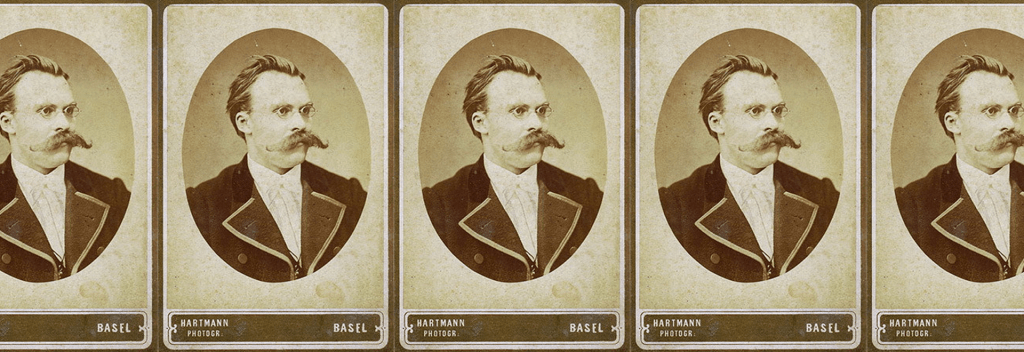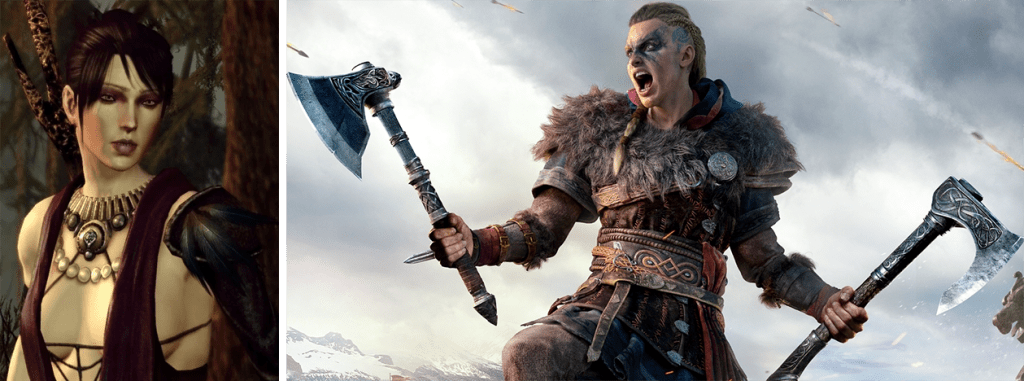
Dangerous Play
I wrote the article below for Wireframe, a British game dev magazine which ‘lifts the lid on video games’. And, inexplicably, lets me have a monthly column.
Friedrich Nietzsche was a brilliant man whose most famous theory, the Übermensch, has wrongly linked him to Nazi and fascist ideology. In reality, Nietzsche denounced both antisemitism and nationalism, and had nothing whatsoever to do with racial ‘master races’ legitimising Hitler’s genocide. It was his sister – curse you, Elisabeth – who contorted his meaning to justify a Nazi worldview. Nietzsche said lots of clever and non-Nazi things, many of which are handily contained in his masterwork, Thus Spoke Zarathustra. But like everyone who talks a lot, he also said some stupid shit. Here’s one of them, from the same book:
“The true man wants two things: danger and play. For that reason he wants woman, as the most dangerous plaything.”
Lottie, you might ask: as (*checks notes*) a woman, might you be a little peeved at this idea, and might you be responding emotionally to the suggestion that women are male toys? Well, I’d respond: you got me. But dangerous female playthings also makes me think of someone I’ve been spending a lot of time with recently – Assassin’s Creed: Valhalla’s femtagonist, Eivor Wolf-Kissed.
Eivor is the most feminist character I’ve ever seen in games. She achieves this in two ways: one, by being the protagonist, and two, by not being relevantly female at all. So unimportant is her femininity that it makes no difference whatsoever whether she’s a woman or a man, though you still get to style her hair if you like. Ubisoft even went so far as to let players swap genders in-game with no effect on the story. So what is it that makes Eivor such a cool woman, if her womanhood doesn’t matter? It’s the one simple idea that mainwave feminism has been asking for since women realised we were bored of cooking dinner and quite fancied having it cooked for us sometimes: equality, regardless of gender.
If you’ve read any of my columns before, you’ll know that I’m actually quite a girly girl. I reclaim the colour pink; I’m goo around kittens; I wear make-up and like shopping for clothes. But this is an identity, not a gender. We’re all a collection of character points which paint a face on the otherwise featureless egg of a human head. Of course, games has a host of female identities: competent, kindly hacker Alyx from Half-Life; Elizabeth, oppressed time-hopping daughter from BioShock; Morrigan, sarky goth sex witch from Dragon Age. But their characters are inextricably linked to being female. It matters that they’re women, particularly to them. So they’re great as characters, but they don’t quite reach the feminist heights of Eivor, who’s so beyond being defined as a woman that sometimes she literally isn’t.
Ian Livingstone was once unfortunate enough to be seated next to me for three hours on a train. He was politely surprised that I didn’t know who he was. But we had a brief meeting of minds over Lara Croft: I thanked him for making her, as she’s the reason I’m in games, and he apologised for making her, abashedly saying: ‘It was the nineties’. I miss the original Tomb Raider series, but as I investigate ancient caves, parkour along crumbling masonry and occasionally shoot the odd endangered species in AC: Valhalla, I feel like nineties Lara has a feminist successor to be proud of, who is a plaything, and whose axe-skills certainly make her dangerous. But she sidesteps the male gaze and Nietzsche’s fleetingly silly opinions. Long may Eivor reign.




Ian Livingstone created Lara Croft? mind = blown!
Anyway yeah, good article. I feel like you came out and articulated some things that I had been subtly wondering about without being able to, uh, articulate.